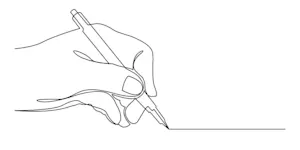What Makes This Word Tick
"Homonym" is like the trickster of the English language, catching people off guard with its playful antics. It's a word that sounds like another word or shares the same spelling, but has a completely different meaning. Imagine a comedian with a penchant for disguise—always keeping you on your toes!
If Homonym Were a Person…
Homonym would be the life of the party, always switching costumes and accents, leaving you guessing who it's pretending to be next. Charming yet mischievous, it delights in surprise encounters, where it might just introduce itself as Reese Witherspoon when it's actually Two Scoops!
How This Word Has Changed Over Time
Originally from Greek 'homonymos,' meaning "having the same name," this word hasn’t veered far from its roots. In centuries past, linguistic scholars used it to classify words that create playful ambiguities, and it’s still a favorite for those same sorts today—language enthusiasts and English teachers everywhere.
Old Sayings and Proverbs That Use Homonym
Instead of specific sayings with "homonym," consider the indirect phrase, "a play on words," which often involves homonyms. It's like the linguistic version of a wink and a nudge, infusing charm into the act of communication, much like your cheeky uncle at Thanksgiving dinner.
Surprising Facts About Homonym
Did you know that homonyms can be broken down into two categories? Homophones sound alike but differ in meaning or spelling (think "flower" and "flour"), while homographs share the same spelling but differ in pronunciation or meaning ("lead," as in the metal, versus "lead," as in to guide). It’s a cozy little family of words that confuse and amuse in equal measure.
Out and About With This Word
You’ll find "homonym" hanging out in grade school language arts classes, delighting young learners with its many disguises. Later, you might spot it in a crossword puzzle or as the theme for a cheeky bit in a comedy show. Wherever there’s language play, homonyms are sure to follow.
Pop Culture Moments Where Homonym Was Used
Think of comedians like Groucho Marx or modern sketch shows—any situation where words are used for humorous effect. Homonyms are the secret sauce in many a comedic line, offering double meanings and laugh-out-loud moments, like the classic "time flies like an arrow; fruit flies like a banana."
The Word in Literature
Literature loves homonyms for their ability to inject humor and depth. Authors from Shakespeare to modern novelists use them to create layers of meaning and puns that resonate with readers who enjoy a bit of linguistic acrobatics. Homonyms are the hidden gems that might just make you chuckle on a second read.
Moments in History with Homonym
In the debate halls of ancient Greece, noted orators might have used homonyms to craft arguments and win their audiences. Fast forward to the 20th century, and you have newspaper headlines with double meanings playing on political events, using homonyms to capture both attention and imagination.
This Word Around the World
While English brims with homonyms, other languages are not exempt from this playful word family. In Chinese, for instance, many characters have identical pronunciations but different meanings, which means wuxing ("no worries") might sound eerily like "five spices" depending on the tone. It gives language learners quite the workout!
Where Does It Come From?
"Homo" means "same" and "onym" means "name" in Greek—put them together, and you’ve got "homonym," literally meaning "same word." This root pairing aptly describes the word's nature, as it involves terms that either sound the same or look the same.
How People Misuse This Word
People often misuse "homonym" when what they really mean are homophones or homographs. It’s like calling every impressive trompe l'oeil a simple photo—technically incorrect, but we're all human, after all!
Words It’s Often Confused With
Homophone: Sounds identical but different in spelling and meaning ("knight" and "night").
Homograph: Looks identical in spelling but carries different meanings or pronunciations ("tear" as in crying and "tear" as in ripping).
Synonym: Similar in meaning but not in spelling or sound.
Additional Synonyms and Antonyms
While "homonym" doesn’t have true synonyms, its antonyms would include words like "distinct" or "unique," which don't share any quibbling ambiguity with others in terms of sound or meaning.
Want to Try It Out in a Sentence?
Sure, give this a whirl: "Navigating through the English language, I stumbled across a homonym that had me pausing at 'bass,' debating whether to cast my line or tune my guitar."
Enjoy the playful journey with homonyms—it’s a linguistic twist that'll keep you guessing and smiling!
















